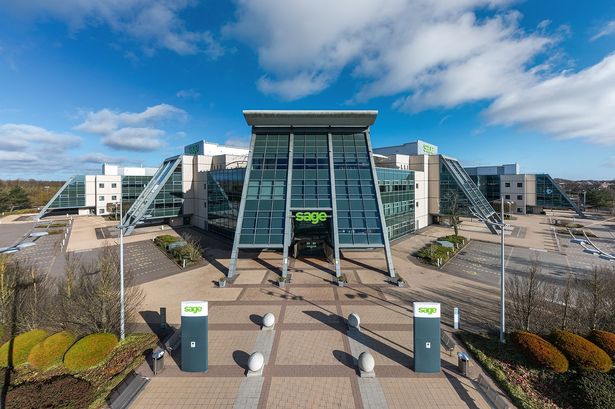Sage, software provider for small and mid-sized businesses (SMBs) in the construction industry, and Tractics, provider of a cloud-native construction management platform for heavy civil contractors, recently announced a partnership that delivers a powerful integration between Sage Intacct Construction and Tractics.
“This partnership brings together Sage’s industry-leading construction financial management solution and decades of innovation in construction technology with Tractics’ expertise in field, fleet, and project operations to deliver the best in accounting and operations software,” said Julie Adams, Senior Vice President, Construction and Real Estate, Sage. “Together, we provide the heavy civil market with a powerful and data-rich platform to seamlessly manage their entire business from the field to the office.”
Sage Intacct Construction focuses on delivering the accounting backbone U.S. businesses need to remain competitive, while Tractics delivers a solution for office, field, fleet, and project operations. The integration includes:
- Centralized, wide visibility into construction operations, in a single platform
- Field apps for foremen and crew so timesheets are updated in real time
- Access to critical data for fleet managers, dispatchers, and back-office staff to simplify operations and keep teams working in sync
- Customizable financial reporting and dashboards
- Anytime, anywhere access to real-time project data
- Dimensional general ledger and multi-entity consolidation
- Automated WIP management
“Tractics was created by contractors for contractors. Drawing on years of hands-on field experience, the platform empowers heavy civil contractors with the tools they need to run their businesses more efficiently. This partnership with Sage enables us to offer our customers even more robust cloud solutions,” said Tyler VanWinkle, CEO, Tractics. “By integrating our platforms, we’re helping businesses to streamline their entire operations which also means simplifying their accounting. This helps bridge the gap between technology and everyday construction business needs so that we’re providing solutions to make our contractor’s lives easier.”
What this means for ERP Insiders
Tractics complements Sage Field Operations in the construction market. Tractics and Sage Field Operations are both construction management platforms, each tailored to specific sectors within the construction industry. Tractics specializes in serving heavy civil contractors, offering tools designed to manage the complexities of large-scale infrastructure projects. Whereas Sage Field Operations caters primarily to specialty contractors such as HVAC, electrical, plumbing, mechanical, and similar trades, focusing on service management and field operations. Tractics provides tools for managing project costs, documents, and processes from bid to completion, enhancing communication and reducing risk. It also offers mobile and tablet applications for real-time collaboration among crew members, foremen, and supervisors, facilitating efficient task and time entry. And it includes features for scheduling equipment moves, monitoring equipment utilization, and gathering real-time driving insights to optimize resource allocation. On the other hand, Sage Field Operations enables management of work orders, scheduling, and dispatching, with real-time data accessibility to improve service delivery. It provides technicians with mobile access to job details, schedules, and site information, allowing for time tracking, work order management, and on-site data capture. And it seamlessly integrates with Sage’s accounting and construction software, such as Sage 100 Contractor, Sage 300 Construction and Real Estate, and Sage Intacct Construction, ensuring consistent data flow between field operations and financial systems.
Heavy civil contracting seeing groundswell of innovation. The construction technology sector is experiencing significant growth, with substantial investments fueling innovation. The median deal size and post-money valuation in the industry have more than doubled since 2017, indicating a robust market expansion. This influx of capital supports the development of advanced tools and platforms tailored to the unique needs of heavy civil construction. There’s a growing demand for interoperable solutions that can seamlessly integrate various aspects of construction management. Companies are seeking platforms that address multiple use cases, reducing the need for disparate systems and fostering a more cohesive operational environment. This trend is leading to the development of comprehensive platforms that cater to diverse project needs. And of course, AI is playing a pivotal role in transforming construction management. AI-powered tools are being utilized for predictive analytics, safety management, and risk assessment. For instance, AI-driven cameras and sensors can detect unsafe behaviors on-site, alerting supervisors in real-time. A notable example includes a large U.S.-based heavy civil contractor that reduced recorded incidents by 28% and cut lost time by 35% using AI technology.
Construction market served well by industry-tailored ERP offerings. The top ten construction ERP providers, including the three noted below, own a combined market share of about 46%. Sage Group is recognized as a major player in the construction ERP software industry, providing solutions that cater to various aspects of construction management. Sage’s construction ERP solutions, such as Sage 300 Construction and Real Estate (formerly Timberline), are widely adopted by construction firms to manage project costs, streamline operations, and enhance financial reporting. The software’s features and industry-specific functionalities have solidified Sage’s position as a trusted ERP provider in the construction sector. But Sage is not alone. Oracle is another solid option in the construction management software market, offering ERP solutions that integrate various construction processes. Oracle’s Construction and Engineering Cloud provides comprehensive project lifecycle management solutions, enabling construction companies to plan, build, and operate projects efficiently. The platform’s ability to connect teams and processes through a unified cloud service demonstrates Oracle’s leadership in delivering scalable ERP solutions for the construction industry. And then there’s Procore Technologies, which offers platforms that facilitate project management and collaboration. Procore’s construction management software provides tools for project management, quality and safety, and financials, all within a unified platform. Its user-friendly interface and focus on improving project efficiency have made it a popular choice among construction professionals.






